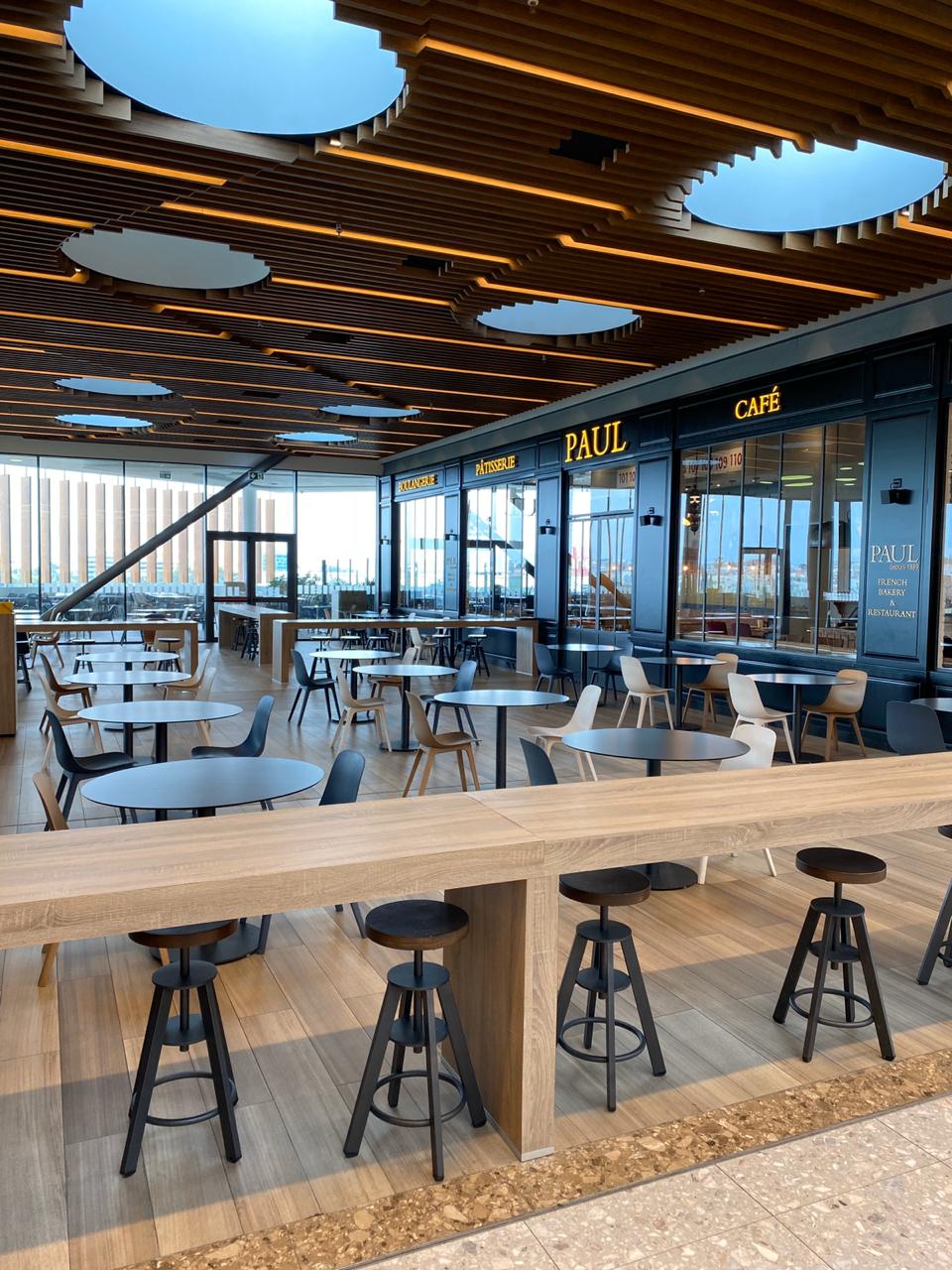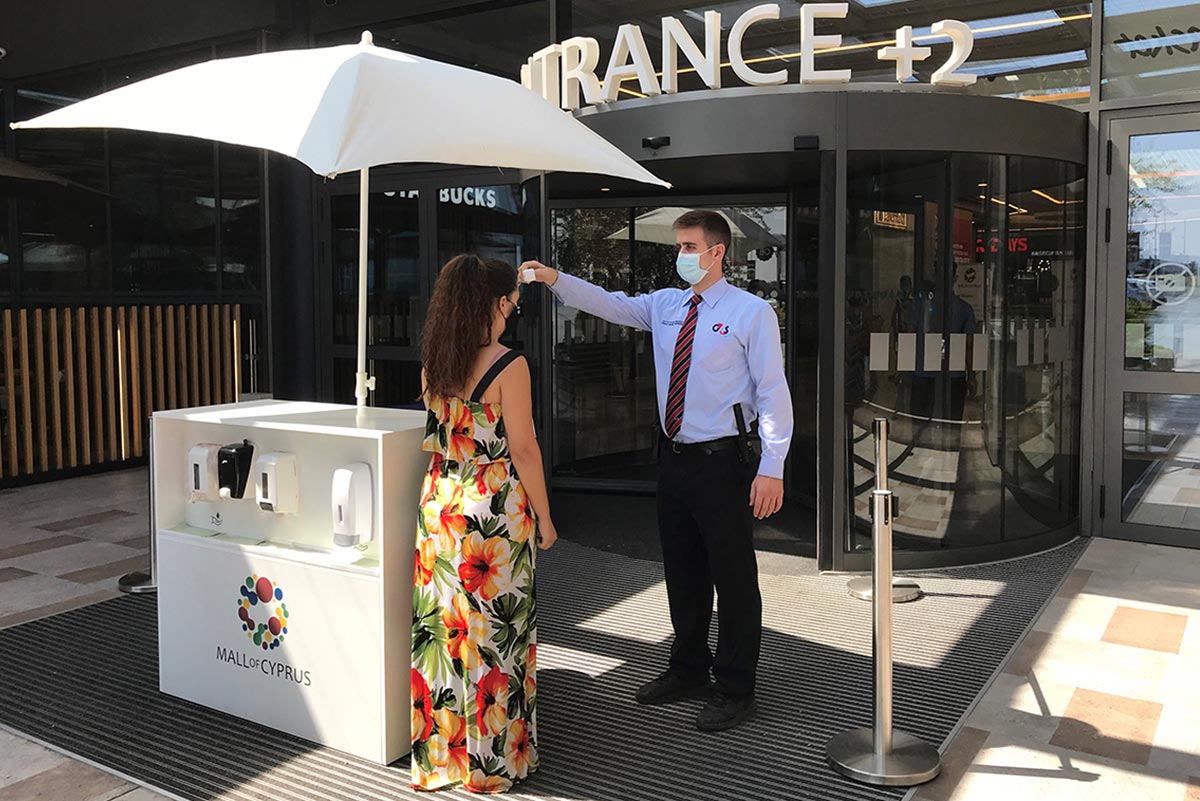As COVID-19 regulations and restrictions globally fluctuated depending on how the pandemic unfolded in different countries, it is not many real estate companies who can say that they have had to adjust operations threefold. Thanks to Atterbury Europe’s partners in Cyprus, business at Mall of Cyprus carried on despite the pandemic. Julian Smith, the General Manager of the Mall of Cyprus, gives a glimpse behind the scenes.
What were the priorities on your plate at the start of the global lockdown, and what was your strategy going into this unusual situation?
The malls in Cyprus were locked down from 16 March to 8 June. The pandemic was announced around a week earlier and the immediate impact was to discourage visitors to the mall in spite of the imposition of capacity measures and distancing within malls prior to the lockdown. The result was, effectively, a virtually empty mall even prior to full closure.


Once the full lockdown was announced the challenge was the communication to all tenants, staff, customers and contractors with regards to how we would handle things like access to the stores for tenants and reduced services during the period. This was in addition to the commercial realities of licence fees and common expenses to deal with.
The other main priority was to immediately reduce the running costs of the operation in terms of security, cleaning, utilities, marketing and so forth to ensure that, since we didn’t know how long the situation was going to last, operational costs were kept to an absolute minimum for however long we remained closed.
What did you see as your biggest challenge, and how was that handled?
In Cyprus significant restrictions were also imposed on the movement of individuals. People could only travel to work if essential and a text messaging system was imposed that allowed people only one daily excursion from home for situations like food shopping, doctor visits and caring for a sick relative. This meant daily permissions were required for our own operational staff to visit the site to implement some of the cost-saving measures that were required. Even I needed to sign a form, giving myself permission to attend work on a daily basis!
The other challenge was that you cannot simply reopen the doors to a mall that has effectively been “moth-balled” for 12 weeks. I was in constant contact with the other malls in Cyprus and the authorities and even before we knew when we might be allowed to re-open, we started planning for how we would do so. Disinfection of the mall, for example; and working with our suppliers and contractors on consumable items, manpower and timetables. All this had to be pre-planned, sourced and ready to go on short notice.
Also important was consumer communication on social media and keeping customers informed that, when we were allowed to open, we had pro-actively implemented the required safety measures as well as some additional ones, to reassure consumers it was safe to visit the Mall of Cyprus.
What is the status in Cyprus as of now in terms of restrictions and how is that impacting currently on trading? How are you managing that?
Cyprus had a tougher lockdown than most other European countries but came out of it in a better position. Travel to and from the island was significantly restricted in order to control the spread of the virus and in an attempt to restrict the infections. When we reopened in early June there was a degree of pent-up demand. Most people, especially governmental employees prevalent in Nicosia, had continued to be paid throughout the period and so there was also disposable income available for spending. Loans and, in some cases, domestic rents had been suspended and so this enabled people to be less cautious with their expenditure. As a result, when the malls re-opened, there was a degree of optimistic consumer confidence that the worst might be over and so sales in June and, in particular, July were fairly buoyant on a like-for-like basis compared with 2019.
However, with the re-opening of the tourist market over the same period, a spike in COVID cases lead to the introduction of mandatory face mask wearing in enclosed public spaces, such as shops and malls. This led to much diminished traffic to the mall in August due to consumer reluctance to shop wearing a mask, especially during the hot summer months. It has since been announced that masks may remain mandatory until early 2021, and consumers have reluctantly accepted the “new normal” which has seen traffic improve. The cinemas reopened this week and we hope this will drive evening traffic and also benefit the food court operators.
What does “business as usual” look like right now?
Mask wearing; temperature checks; stringent cleaning regimes and reduced capacities in store and restaurants presents ongoing challenges and additional expense. Mall traffic is improving, but still below last year this time.
The cliché says that for every challenge there is an opportunity. What would you say is the one key learning that you and your team have taken away from this unusual year? If you could step back to the beginning of 2020, knowing what you know now, would you have done anything differently over the last 8 or 9 months?
Operationally, we’ve done everything required of us and more. We worked as a team and have had significant guidance from senior management on issues such as debtor balances and overall financial management. With regards to opportunities, I think these may come from the retail sector directly. Regrettably there may be some retail casualties as a result of this pandemic, and this may perhaps present some opportunities for others to enter the market.
On a personal level, in hindsight, I would have brought my family over from Ireland sooner since the rationale for them staying there until Summer 2020 was for school exams which ultimately never happened. As a result, we ended up separated due to travel restrictions between February and June – that was tough for all of us, particularly with no certainty on when we might see each other again.

